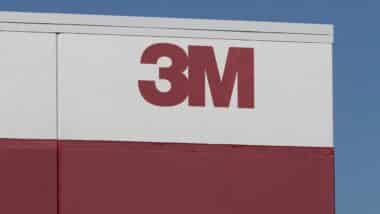 A Brooklyn ambulance service has been accused of Medicare overbilling by submitting claims for ambulance trips that were non-emergent.
A Brooklyn ambulance service has been accused of Medicare overbilling by submitting claims for ambulance trips that were non-emergent.
The inspector general for the U.S. Department of Health and Human Services recently announced that an audit showed Midwood Ambulance Service, a New York ambulance company, racked up $19 million in Medicare overbilling between 2014 and 2015. The audit of 100 bills was looking for non-emergency ambulance transport services that were non-compliant with federal requirements, and reportedly found 89 bills to reject on those grounds.
Although Medicaid covers ambulance services, a payout is only allowed when a statement is provided by a doctor, according to the Department of Health and Human Services’ website.
“Midwood did not comply with Medicare requirements for billing nonemergency ambulance transport services for 89 of the 100 claims we reviewed. Specifically, Midwood incorrectly billed Medicare for beneficiaries whose conditions did not meet medical necessity requirements and billed for services that did not meet documentation requirements” the audit reads. “These errors occurred because Midwood did not have adequate controls to prevent the incorrect billing of nonemergency ambulance transport claims.”
For 82 Medicare overbilling claims, Midwood reportedly billed for services that did not meet the program’s medical necessity requirements. In 49 Medicare overbilling claims, Midwood reportedly failed to obtain certification from doctors that the ambulance transfer was medically necessary. Some claims were deficient in both regards, adding up to a total of 89 rejected claims.
Although Midwood reportedly implemented procedures that required staff to contact doctors for certification, there were no procedures to ensure that these certifications would be obtained within the required time periods.
Based on the results of the sample audit, many of the 114,138 claims filed by Midwood were rejected – requiring a $19.2 million return of the $23.5 million the government paid as a result of overbilling.
However, Midwood has challenged this determination, claiming that the audit was “hardly a statistically representative sample” of all of the claims filed by the company.
“Midwood cannot simply accept the [Office of Inspector General (OIG)] findings and make such an exorbitant refund without the ability to further investigate individual claims […] Midwood is not convinced a $19 million overpayment refund is warranted,” Midwood president Al Rapisarda said in a written response.
Rapisarda also noted that Midwood was in a precarious financial situation. The company was sold in September.
“The sale was necessary because Midwood was losing money and had extensive debts. The business was sold at a loss, with barely enough to cover existing debts,” Rapisarda said.
The OIG argued back against these claims, stating that “the use of statistical sampling and extrapolation to determine overpayment amounts in Medicare does not violate due process” because Midwood was given the opportunity to appeal the audit results.
The OIG also noted that sample sizes of 100 or smaller have been “routinely” upheld by the Departmental Appeals Board and federal courts.
“The legal standard for a sample size is that it be sufficient to be statistically valid, not that it be the most precise methodology,” the OIG noted. “In addition, we recommend recovery at the lower limit. This approach results in an estimate that is lower than the actual overpayment amount 95 percent of the time, and thus it generally favors the provider.”
In general, whistleblower and qui tam lawsuits are filed individually by each plaintiff and are not class actions. Whistleblowers can only join this investigation if they are reporting fraud against the government, meaning that the government must be the victim, and that the alleged fraud should be a substantial loss of money.
Do YOU have a legal claim? Fill out the form on this page now for a free, immediate, and confidential case evaluation. The attorneys who work with Top Class Actions will contact you if you qualify to let you know if an individual qui tam lawsuit or whistleblower class action lawsuit is best for you. Hurry — statutes of limitations may apply.
ATTORNEY ADVERTISING
Top Class Actions is a Proud Member of the American Bar Association
LEGAL INFORMATION IS NOT LEGAL ADVICE
Top Class Actions Legal Statement
©2008 – 2026 Top Class Actions® LLC
Various Trademarks held by their respective owners
This website is not intended for viewing or usage by European Union citizens.
Get Help – It’s Free
Join a Free Whistleblower, Qui Tam Lawsuit Investigation
If you believe that you have witnessed fraud committed against the government, you may have a legal claim. Whistleblowers can only join this investigation if they are reporting fraud against the government, meaning that the government must be the victim, and that the alleged fraud should be a substantial loss of money.
See if you qualify to pursue compensation and join a whistleblower lawsuit investigation by submitting your information for a free case evaluation.
An attorney will contact you if you qualify to discuss the details of your potential case.
PLEASE NOTE: If you want to participate in this investigation, it is imperative that you reply to the law firm if they call or email you. Failing to do so may result in you not getting signed up as a client or getting you dropped as a client.
Oops! We could not locate your form.












